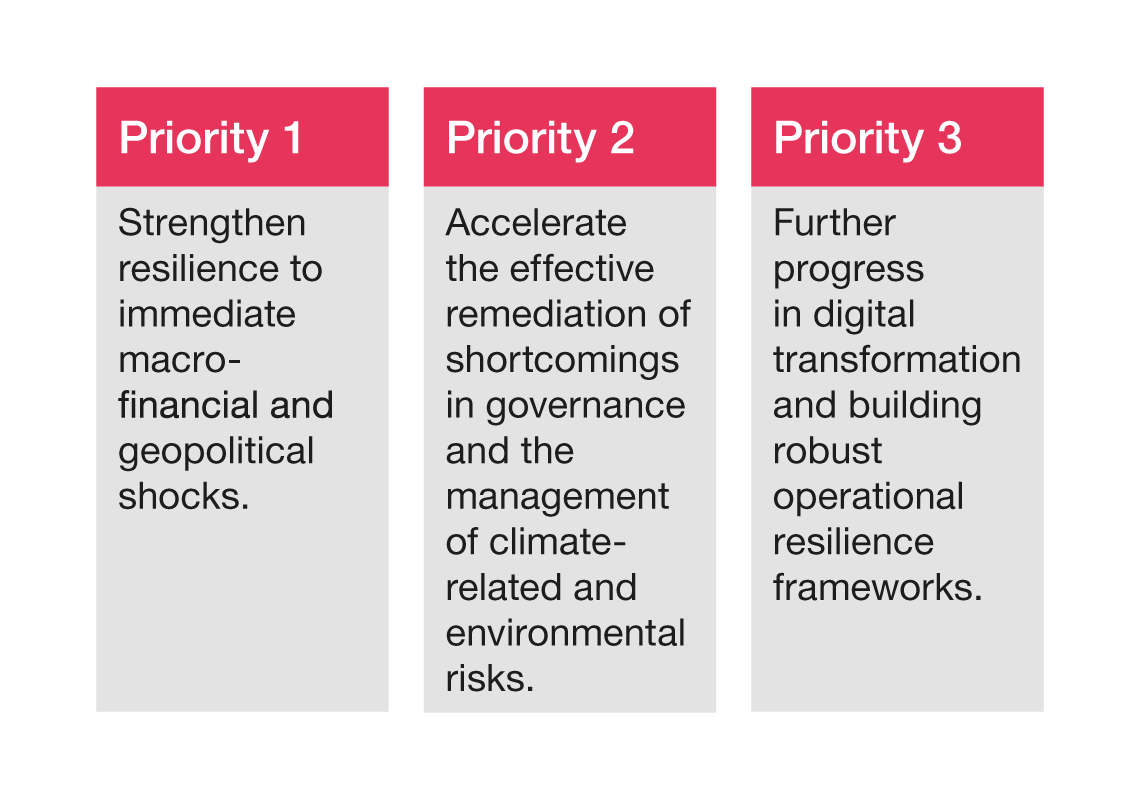Resilience to Immediate Macro-Financial and Geopolitical Shocks: CEOs should take the lead in devising new strategies for liquidity and funding to manage risks stemming from interest rate changes and customer behaviour changes. They should develop an understanding of their banks’ exposure to the Interest Rate Risk in the Banking Book (IRRBB) and ensure regular reviews and evaluations of the IRRBB framework.
Managing Governance and ESG Risks: CEOs and the chairpersons of the boards of directors should promote a culture of openness and constructive dialogue, whereby both the senior management and the board constructively challenge one another. The CEO should also guide efforts towards establishing or refining the bank’s net-zero transition plan, as well as reviewing the quality of the bank’s disclosures on climate-related and environmental risks.
Progress in Digital Transformation and Digital Operational Resilience: CEOs should set general objectives for the digital transformation strategy, ensuring alignment with the bank’s strategic objectives and risk appetite. They should oversee the implementation of the EU’s Digital Operational Resilience Act (DORA) and the bank’s emergency response and disaster recovery plan.
Tax-related Risks and Opportunities: CEOs should consider establishing a department dedicated to managing tax affairs or weigh potential outsourcing arrangements as this could unlock a host of tax-related opportunities for the bank. In addition, they should direct efforts towards understanding how the Luxembourgish government’s digital and ecological transformation (DET) tax credit can benefit the bank.
Coping with Heightened Financial Crime Risks: CEOs should regularly consult with the Chief Compliance Officer (CCO), the Chief Risk Officer (CRO), and the Chief Operating Officer (COO) regarding the bank’s Anti-Money Laundering (AML) processes and procedures. They should not hesitate to take necessary actions to remediate any identified shortcomings.
These actions are aimed at enhancing the resilience, governance, digital transformation, tax management, and financial crime prevention in the banking sector. CEOs are encouraged to take a proactive and strategic approach in implementing these recommendations to navigate the evolving financial landscape.









